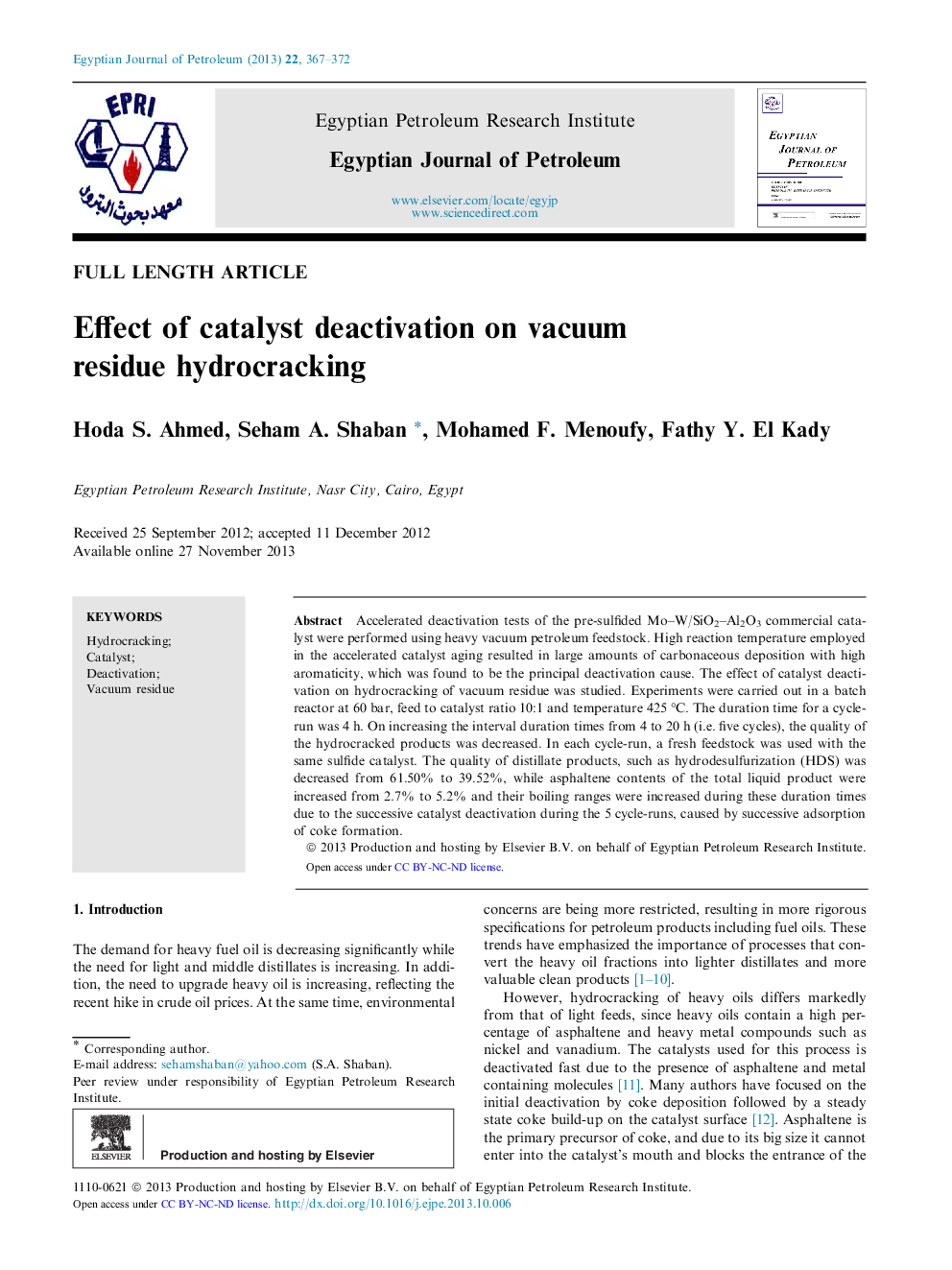| Article ID | Journal | Published Year | Pages | File Type |
|---|---|---|---|---|
| 1756930 | Egyptian Journal of Petroleum | 2013 | 6 Pages |
Accelerated deactivation tests of the pre-sulfided Mo–W/SiO2–Al2O3 commercial catalyst were performed using heavy vacuum petroleum feedstock. High reaction temperature employed in the accelerated catalyst aging resulted in large amounts of carbonaceous deposition with high aromaticity, which was found to be the principal deactivation cause. The effect of catalyst deactivation on hydrocracking of vacuum residue was studied. Experiments were carried out in a batch reactor at 60 bar, feed to catalyst ratio 10:1 and temperature 425 °C. The duration time for a cycle-run was 4 h. On increasing the interval duration times from 4 to 20 h (i.e. five cycles), the quality of the hydrocracked products was decreased. In each cycle-run, a fresh feedstock was used with the same sulfide catalyst. The quality of distillate products, such as hydrodesulfurization (HDS) was decreased from 61.50% to 39.52%, while asphaltene contents of the total liquid product were increased from 2.7% to 5.2% and their boiling ranges were increased during these duration times due to the successive catalyst deactivation during the 5 cycle-runs, caused by successive adsorption of coke formation.
